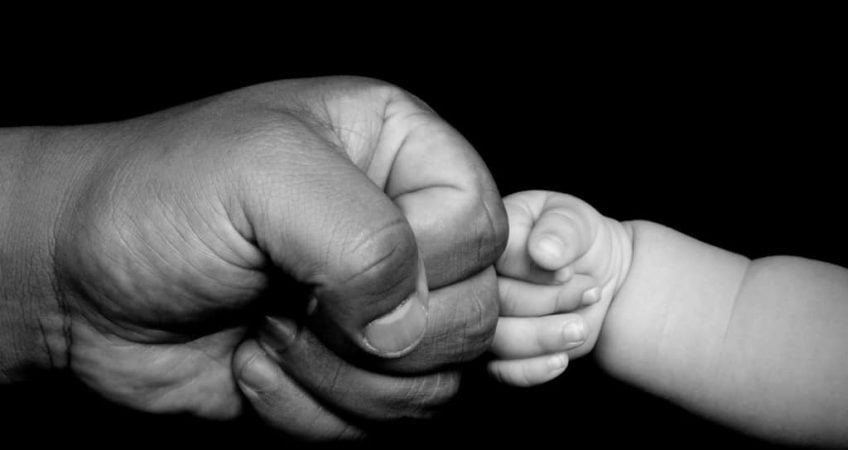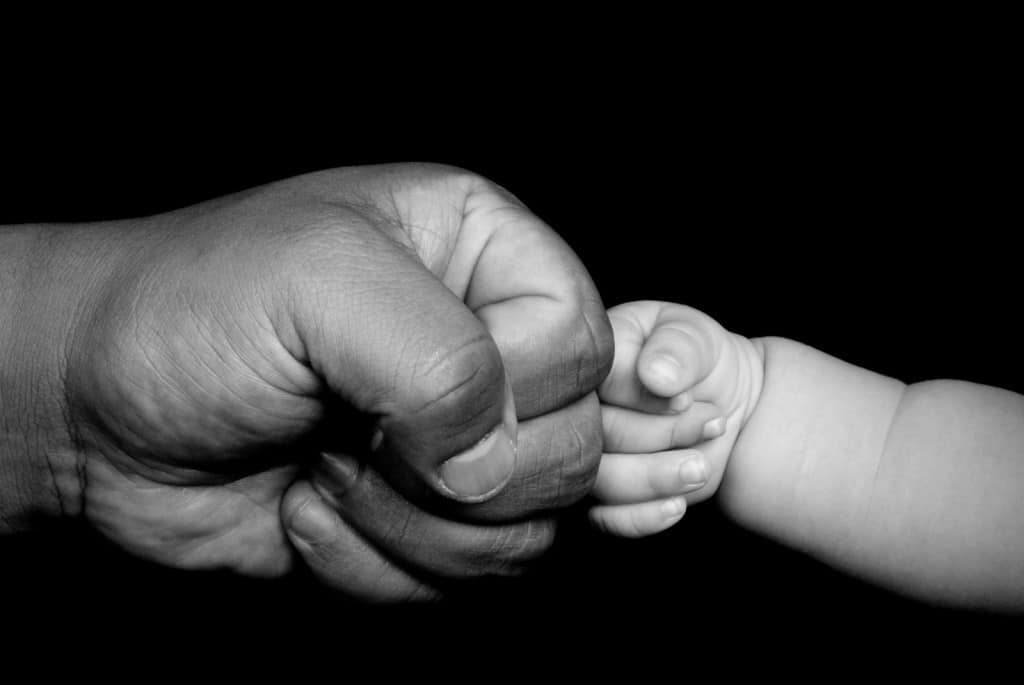HOMILY FOR THE MASS FOR 23RD SUNDAY ORDINARY TIME A + FATHER’S DAY

St. Mary’s Basilica, Sydney

Perhaps the most famous father in recent pop culture is Homer Simpson. Since 1989 he has starred in most of the 684 episodes and 31 series so far of the animated sitcom The Simpsons. Although he is a lovable, funny man and devoted to his kids, he’s often ignorant and boorish, drools over women and food, abuses his neighbours, skips church and is a poor role-model. His catch-cry “D’Oh” is supposed to excuse his part in whatever goes wrong. His method of disciplining his son Bart is to choke him mercilessly. If Homer is typical of today’s dads, the family is in a sorry state!

Many psychologists and sociologists have reported on the multiple ill-effects on children and on the broader society of poor fathering and absent fathers.[1] Fatherlessness is now written into our movies, songs and blogs. It’s said to be a major factor in socio-economic disadvantage, gang behaviour, teen pregnancy and drug abuse. Many children today grow up with various men at most temporarily in their lives or lacking male role models altogether. Some are just slobs like Homer. Others abandon their wives and children, or press women to kill their babies in the womb or engage in other kinds of domestic violence. No wonder pop culture can be cynical about fathers.

Yet that’s not the only take on paternity. For the past decade Dove soap have made a series of ads about relationships between dads and kids. Over sentimental words and music we’ve seen children of various ages receiving daddy’s assistance in learning to walk or swim, read or play sport, when waking from a nightmare or getting their hair cut, in replacing a flat tyre or celebrating their wedding day and, most recently, when working from home during COVID lockdown. Whether Dove can persuade men to use skin softening products or not, the company has certainly been proposing a higher ideal than being buffoons without self-control. It asks fathers to be around, dependable, teachers and models. It’s hardly a revolutionary message: it’s an ancient wisdom that Christians share with many other cultures and religions. But it is one that needs to be recovered today.
Christians have an extra take on these things. Jesus regularly called upon God as His heavenly Father, calling on Him for assistance or praised Him.[2] When He was exhausted He would go off to a lonely place to talk to His Father. When facing the horror of crucifixion, He begged His Abba to intervene (Mt 26:39). Jesus knew that all things were possible for His Father, that He was in his Daddy’s hands, and that He could trust that all would turn out for the best. When it became clear that He was being asked to sacrifice Himself for humanity, Jesus willingly acceded to His Father’s will.

Murillo, Holy Family, Holy Trinity (National Gallery, London)
Jesus taught His disciples likewise to pray to God as Father in praise or intercession,[3] to learn from and obey that Father,[4] and to trust in His watchful care.[5] They were also to honour their earthly parents.[6] St Paul likewise taught the early Christians to call God ‘Abba’ Father and be gentle fathers themselves (Rom 8:15; Col 3:21). Whether it be the actual fatherhood of men nurturing their own children, or the emotional fatherhood of adopting, fostering, child-minding men, or the moral fatherhood of teachers, role models and campaigners for life and love in the public square, or the spiritual fatherhood of godfathers and clerics – all these forms of paternity in some way stem from the fatherhood of God and are measured against it.
The paternity of God is an awesome mystery. God is the Father always and only in relation to His only-begotten Son, donating His entire essence to Him. Put baldly: without the Son He is not God the Father. That is why Jesus can say that all that the Father has is mine (Jn 16:15). God also expresses a kind of paternity over all creation, as its transcendent origin, authority and carer (CCC 239). He has TLC for us as His children. The Father creates, redeems, adopts and inspires us, like the Dove Dad and much more, raising us up to eternal life in His family (Mt 6:32). The Christian Gospel suggests that human fathers – biological, emotional, moral or spiritual – are all to image this divine care, donating their very selves for the wellbeing of the young.
Our readings today point to a particular aspect of paternity that is often overlooked, even by accounts as aspirational as the Dove commercials. Our epistle suggests that the Christian home must be a sanctuary where the internal logic of love – the ten command-ments – is lived and taught (Rom 13:8-10). And as Ezekiel points out, people must be guarded, not just from external attack but also from internal challenges to their character (Ezek 33:7-9). Prophets, priests, fathers must sometimes call their wards to account.
But at that point the TV ads freeze. In a world where nothing is right or wrong anymore, where it’s all opinion and no-one wants to impose on others, we can lack confidence as moral guides. Yet Jesus says today we must warn brothers and sisters in peril of doing something wrong (Mt 18:15-20) – not out of judgmentalism, holier-than-thou pride, a desire to control, but in all humility trying to bring them back on track, for their sake not ours.
Last week we saw Jesus correct Peter (cf. Mt 16:23). This week He tells us such correction belongs to every Christian, even if it’s a task we must be careful not to enjoy too much. It’s one thing for God to discipline His children, but mere mortals like ourselves need to be extra careful about the truth of what we say, our manner of saying it, and our motives for doing so. When we correct friends or colleagues it must be for their sake and for the common good; when we mentor our children it’s all for their sake.
In view of this day I recently asked my now-elderly Dad what I used to ask him every year as a child: what did he want for Fathers’ Day. To my delight he gave the same answer he used to give way back: “Just good children”. His own example of fatherhood doubtless informed my siblings’ parenting but also my own spiritual paternity as a godfather, priest and bishop. Interestingly, in an episode where Homer Simpson disciplines Bart after he played up by refusing to let him see a movie, we are shown a ‘flash-forward’ to the day when Bart becomes a Supreme Court judge because of the good direction he was given that day by his dad.

Human paternity, then, at its best, images that of God our Father. It is not about being boss but about trying to build each other up, to be all we could and should be, to be heroes, to be saints. It is formation and therapy for the soul. God bless our fathers and all who share in their paternal care of our world.
ANNOUNCEMENT IMMEDIATELY AFTER THE AGNUS DEI
Before Genuflecting
Because current circumstances continue to impede attendance at Mass and reception of Holy Communion, I invite those who are joining us by live-streaming to ask God that by spiritual communion you might receive the graces of sacramental communion. Offer this Mass and your hunger for the Eucharist for the safety of your loved ones, of yourselves and of our world.
[1] E.g. David Bankenhorn, Fatherless America: Confronting Our Most Urgent Social Problem (Harper, 1996); Cynthia Daniels, Lost Fathers: The Politics of Fatherlessness in America (Palgrave Macmillan, 2000); Robert Falzon et al, Raising Fathers: 12 Stories of Fathering from the Frontline (ConnorCourt, 2020); Sam Mehaffie, Fatherless America and the Church (CreateSpace, 2014); David Popenoe, Life Without Father: Compelling New Evidence that Fatherhood and Marriage are Indispensable for the Good of Children and Society (Free Press, 1996) and Families Without Fathers: Fathers, Marriage and Children in American Society (Routledge, 2009); John Sowers, Fatherless Generation: Redeeming the Story (Zondervan, 2010); Michael Willett, Fatherhood: Fight or Flight (Willett’s Books, 2020).
[2] E.g. Mt 11:25-27; Lk 22:42; 23:34,46; Jn 11:41; 12:27-8; ch. 17.
[3] E.g. Mt 5:16; 6:1-18; 18:19; Lk 11:1-13; Jn 15:16; 16:23.
[4] E.g. Mt 5:48; 16:17; Lk 2:49; 10:21-2; Jn 6:45; 15:26.
[5] E.g. Mt 6:25-34; 10:29; 18:14; Lk 12:30; Jn 5:23.
[6] Mt 15:4-6; 19:19,29; Lk 2:51; ch. 15; 18:20.
Welcome to St Mary’s Cathedral in Sydney, for the Solemn Mass for the 23rd Sunday of Ordinary Time. As we continue to meet, some in this cathedral and most in the virtual space, I extend my thanks to you all for keeping the flame of faith alive through these troubled times. As some easing of restrictions occurs, we trust that we will soon be able to return closer to normality in our life of worship and that, in the meantime, we are at least treated equally to other public venues and activities by the authorities and make prudent use of these opportunities ourselves.
We thank God that the COVID deaths were lower this past week in Australia and especially in Victoria and we continue to pray for the dead, sick or anxious, their carers and researchers, those experiencing financial or other hardship, and those leading us.
We are especially sorry that the COVIDSafe restrictions mean many people cannot visit their fathers on this Fathers’ Day, but we can offer this Mass for our fathers, living or deceased, and thank God for the gift they have been for us.
To everyone present, physically or virtually, a very warm welcome to you all!

